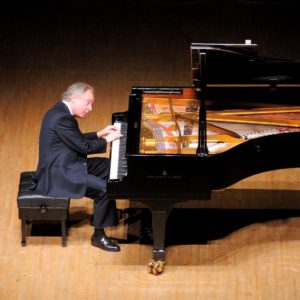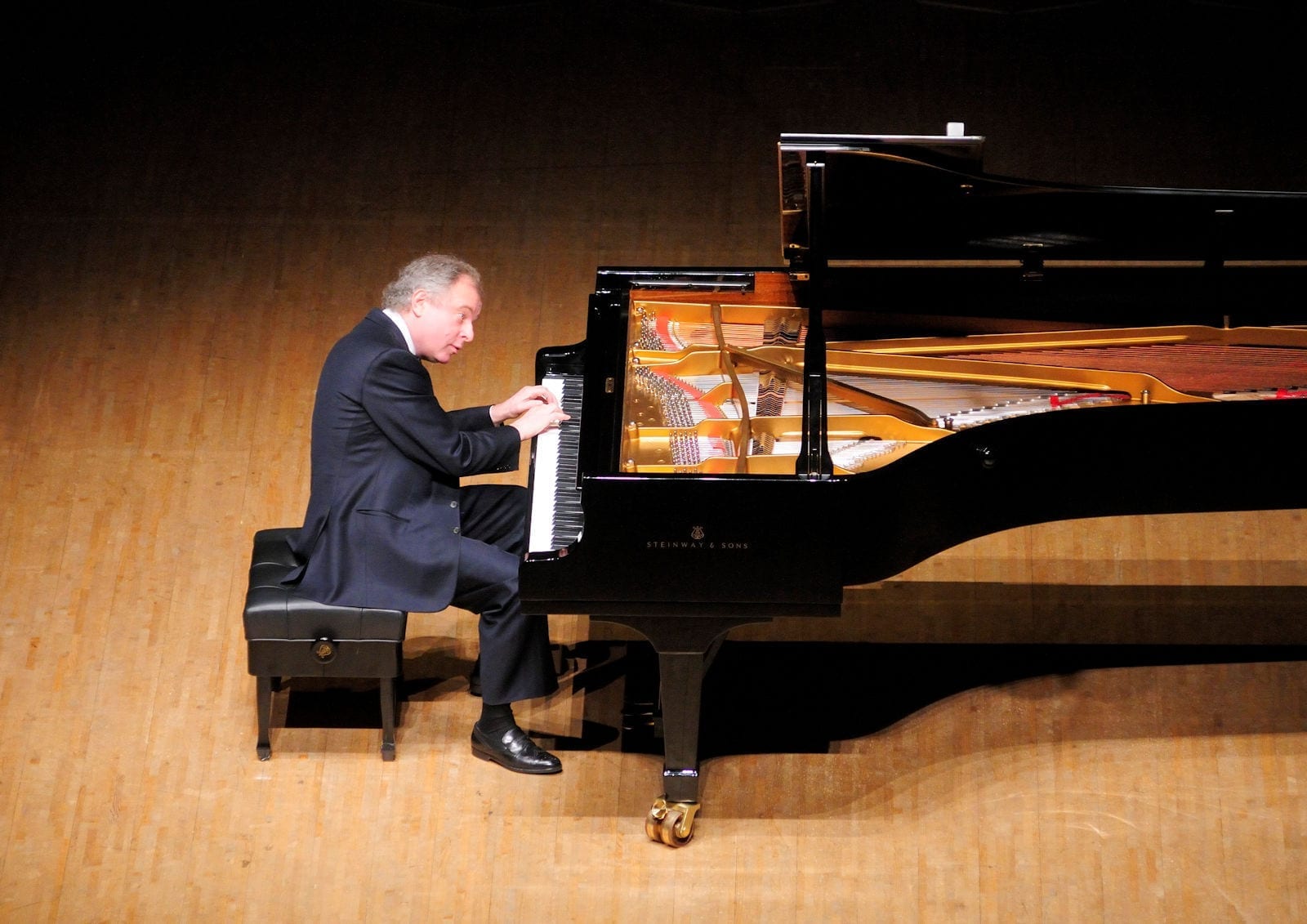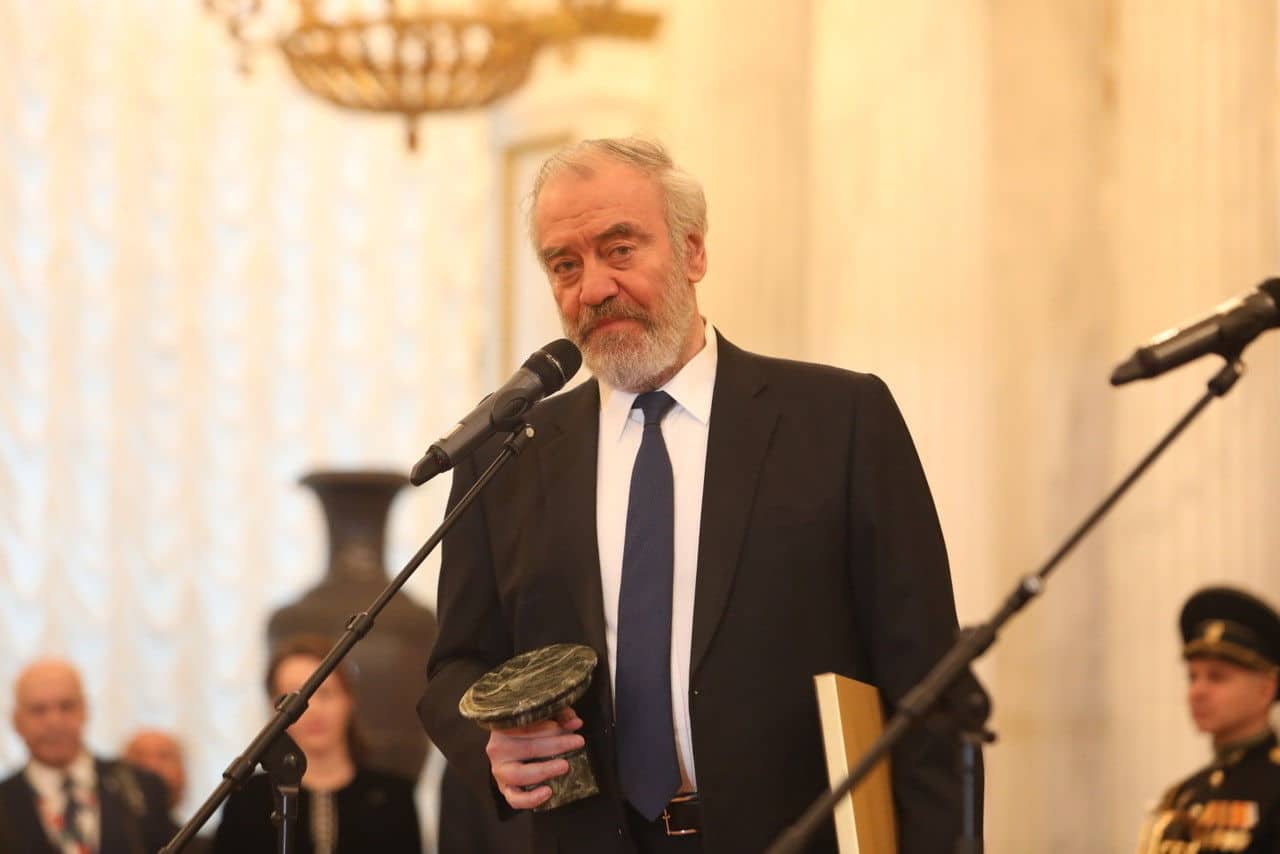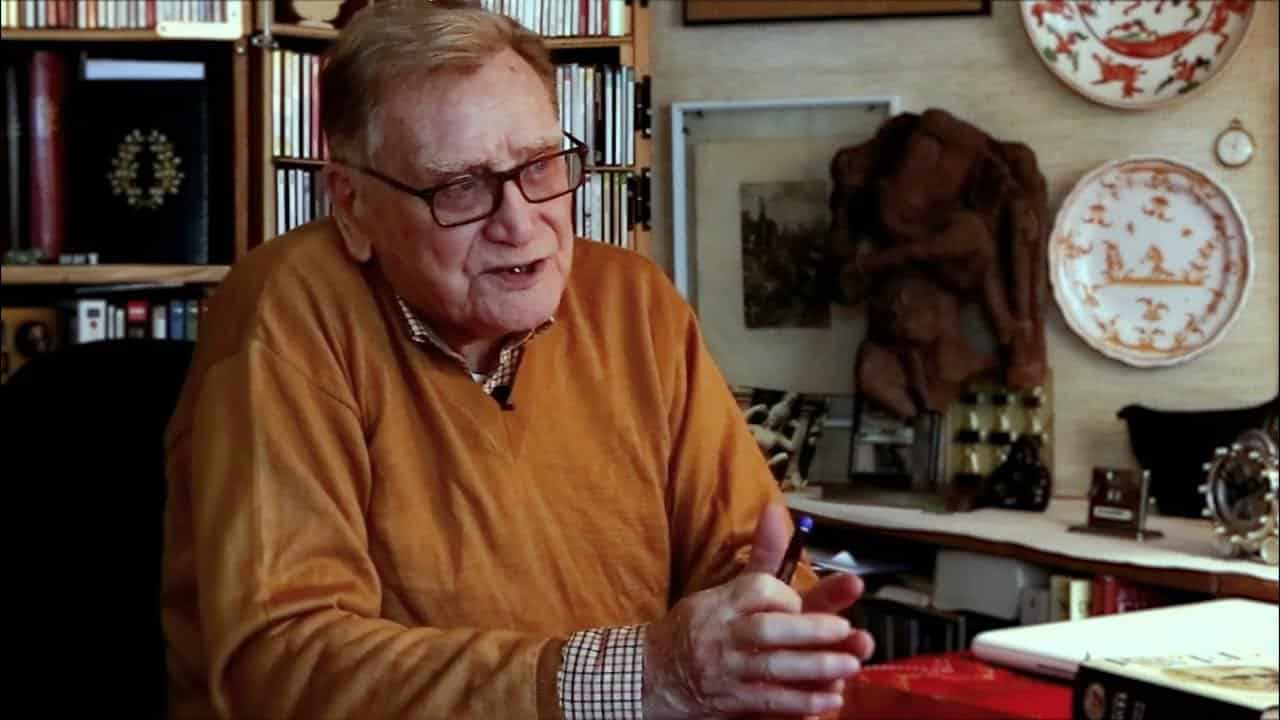How to make a miracle in Mozart
Alastair MacaulayAlastair Macaulay reviews last night’s Philharmonia concert at the Royal Festival Hall, exclusively for Slipped Disc:
A Feast of Mozart
by Alastair Macaulay
The pianist Andràs Schiff comes onto the concert platform like nobody else in the world. Wearing tails, waistcoat, and white tie, with his arms hanging stiffly by his sides, and with his eyes scarcely seeming to see either audience or auditorium, he might be an undertaker or a sleepwalker, quietly possessed of some secret. Once he’s arrived, though, he’s perfectly – even sweetly – gracious to his colleagues, and without showiness. Then he sets to work.
There’s no glamour about Schiff, and no flamboyance. For these very reasons, he becomes a wonderful artist to watch as well as to hear. That quality of quiet concentration and classical repose draws you in. Playing apparently from a still centre of composure, he becomes a mass of expressive variety.
At the packed Royal Festival Hall on Thursday, he played and conducted the Philharmonia Orchestra in “A Feast of Mozart.” He opened this quadruple bill with the Piano Concerto no 9, K. 271. This is famous for the startling ease with which it reinvents standard concerto form: its very opening phrase becomes an exchange between orchestra and piano. From here onward, Mozart, then aged twenty-one, is absolute master of his medium, taking every phrase just where he wants.
The same was true of Schiff. His was Mozartian playing not just for its clarity and elegance but in its way of apparently taking us into the creative intensity of the composer’s thought. Simplest moments became brimful of harmonic and rhythmic tension. Jocose lightness and poignant emotion were astoundingly balanced.
The andantino second movement, starting exquisitely elegiac, built up to quiet marvels of pressure, only then to relax into a seraphic glow. In the concluding movement, effects of melody and percussive rhythm played fascinatingly off each other: an effect of fluent charm here is immediately counterbalanced by a softly hammering pulse.
There followed the “Linz” Symphony (no 36 in C major, K. 425). Even when Schiff has no pianistic duties, he conducts with marvellously gentle economy. He seems simply to release and coordinate the orchestra, rather than to drive or manipulate it.
Nonetheless, one beauty upon another emerged, with range and eloquence out of all proportion to Schiff’s physical manner. The opening adagio had scarcely started than a quietly descending line for the upper strings at once brought tears – which Mozart quickly dried. Whenever you think you know the mood this composer is creating, he makes some adjustment of harmony or dynamics to take you somewhere new. As Schiff kept showing, he’s the most expressive and the most elusively ambiguous of artists.
After the interval, Schiff returned to the platform. Then he sat at his piano for a moment. Then he rose to conduct the overture to Don Giovanni (with the concert ending devised by Mozart). Then, after facing the orchestra a while longer as if ready to conduct the overture’s sequel, he suddenly sat down – and commenced Piano Concerto no 20, K.466.
What a sensational pairing! Don Giovanni, from its fateful opening chords, shows Mozart communing with the dark and massive terrors of Hell. At the start of the Piano Concerto no 20, he’s driven by demons.
And here Schiff himself seemed newly possessed – not in any exhibitionist way but in the insistence with which he often powered his way along, his left hand at times hammering with frightening force. Just as this startled you, he and Mozart turned celestial. This music is Faustian drama, with Mozart the creative genius caught painfully between heaven and hell – yet able to move between them with bewildering fluency.
Schiff never over-forces this drama: he’s modest, selfless, even at moments of peak intensity. In his third-movement cadenza, he fleetingly invoked Don Giovanni, thus clinching this pairing of darkly supernatural Mozart masterworks. Then for an encore he returned us to Mozart the serene, Mozart the elegant, Mozart the lyric poet.
As Schiff thanked his Philharmonia colleagues, you felt the elation he shared with them. The whole evening – lasting almost two hours and a half – had been a study in alchemy, in metamorphosis, in miracle-working. How can one composer achieve so much, often in a single phrase?







And at the delightful climax, the release, the escape:”he’s modest, selfless”
Yes! Compare with the flamboyance of many of the younger pianists. “All eyes on me!”
(it’s) nice to read on Mozart, who is the one and only ( nowadays at least) I start my day. Early Mozart is so playful and childishly vibrant that noone can resist to listen to it … still remember my last Mozart eve at the concert hall this summer ( with outstanding acoustics) including Exsultate ( sung the world leading coloratura) , 17th concerto ( played by a rising star) and some other pieces which were in accord to the said above … Mozart is for ever 😉 … be it so ….
Do any others have a problem with reading posts on S.D. site? The font size is too small and expanding it on an iPad makes reading a long post such as this one very cumbersome. The comments section is fine as there is a border on either side so expanding it is easy and if this format is used for above the line posts, problem solved. I enjoy the posts and very grateful for the work in assembling them here. My problem is glaucoma, so gradual deteriorating eyesight.
I find iPads and phones too small for reading. I tend to use a big laptop computer or a 10-inch Fire tablet.
I’m so sorry for your having glaucoma. I surely hope it won’t progress too far.
I also have glaucoma and use eye drops from my ophthalmologist to control the pressure. It’s been in the normal range for almost 2 years. Perhaps you could talk to an opthalmologist about them.
Didn’t just do two different recitals at Wigmore Hall with late Schubert and even Beethoven’s Hammerklavier?
Yes indeed and I just watched them today.
Beethoven OP 106 disappointing as with all pianists except Richter.
“ How can one composer achieve so much, often in a single phrase?”
Beautifully and perfectly said.
He wasn’t much good as a dance reviewer and has now translated those skills into not being much good as music reviewer. This story is loaded with self congratulating puffery. Cmon, where’s the music?
Yes-he does a lot of talking before “playing”..more boredom.
Please just shoot him.
You are so fortunate to have heard this concert. Schiff is a wonderful artist!